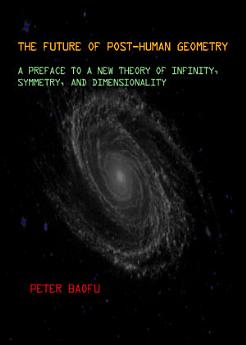The Future of Post-Human Geometry: A Preface to a New Theory of Infinity, Symmetry, and Dimensionality
About this ebook
Contrary to the conventional wisdom in all history hitherto existing, the essential properties of geometry do not have to be both necessary and desirable.
This is not to suggest, of course, that one has nothing to learn from geometry. On the contrary, geometry has contributed to the advancement of knowledge in many ways since its inception as a field of knowledge some millennia ago.
The point in this book, however, is to show an alternative (better) way to understand the nature of geometry, which goes beyond human conception, intuition, and imagination, together with worldly experience of course, as its foundation, while learning from them all—with theoretical implications for time travel, hyperspace, and other important issues.
If true, this seminal view will fundamentally change the way that the nature of abstraction in the thinking process is to be understood, with its enormous implications for the future advancement of knowledge, in a small sense, and what I originally called its “post-human” fate, in a large one.
About the author
He is known for his pioneering works on “post-humanity,” “comprehensive creative thinking,” “post-capitalism,” “post-democracy,” “contrastive advantages,” “ambivalent technology,” “authoritarian liberal democracy,” “the post-post-Cold-War era,” “post-civilization,” “transformative aesthetic experience,” “synthetic information architecture,” “contrastive mathematical logic,” “dialectic complexity,” “after-postmodernity,” “sophisticated methodological holism,” “post-human space-time,” “existential dialectics,” “unfolding unconsciousness,” “floating consciousness,” “hyper-spatial consciousness,” and so on.
He earned an entry to the list of “prominent and emerging writers” in Contemporary Authors (2005) and another honorary entry in The Writers Directory (2007). He was a U.S. Fulbright Scholar in the Far East. He had taught as a professor at different universities in Western Europe, the Caucasus, the Middle East, the Balkans, Central Asia, and North America. He finished more than 5 academic degrees, including a Ph.D. from M.I.T., and was a summa cum laude graduate.






